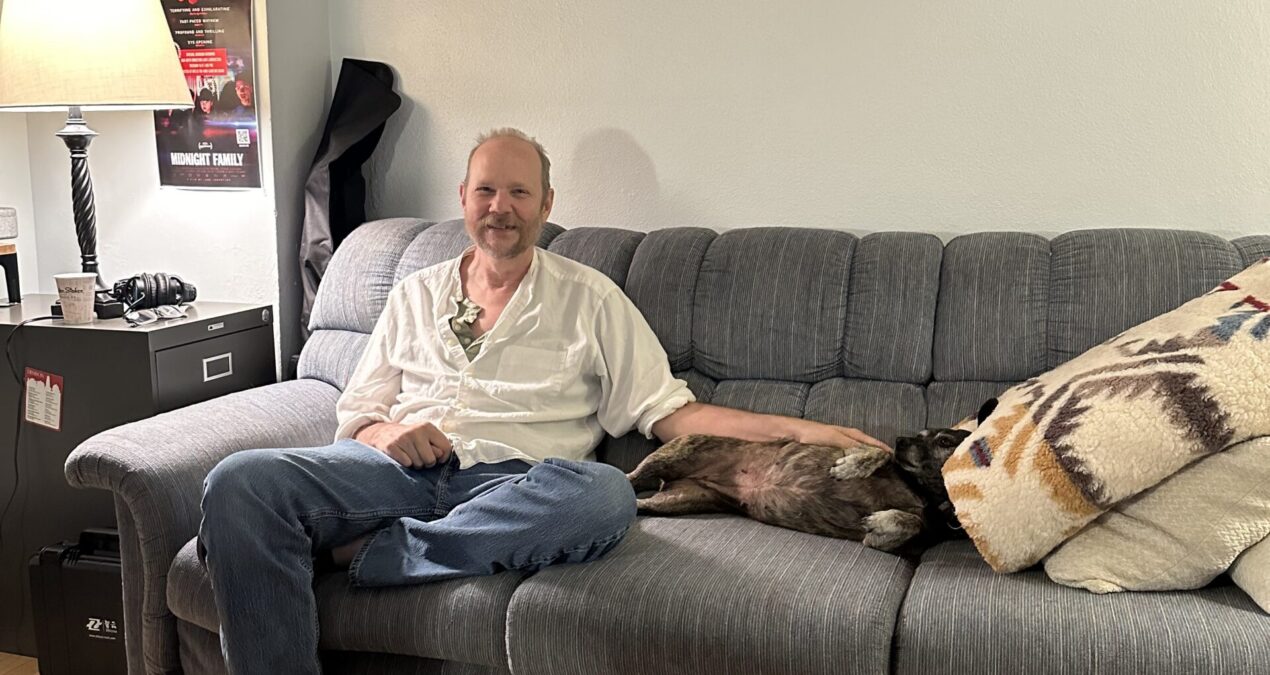Olivia Barton, Staff Writer –
Though receiving tenure is a great honor, for Doug Swift, it was the moment he knew he needed to leave.
“I had more living and growing to do than I felt like I could do at that job,” said Swift.
Upon leaving Muskingum University, Swift continued to teach creative writing workshops, including one called “Write to Heal.” Telling stories has always been a method of grounding for Swift. He learned Buddhist meditation and yoga and picked up fine woodworking. Swift tried to make some money through some of these passions but described himself as a “bad businessman.”
Around the same time, Swift also began learning documentary filmmaking, which had then become digitized. Swift is no stranger to creating a story and had experience with cinematography in college.
Once his son had gotten older, he realized it may have been time to go back into teaching, at least part-time. He taught as an adjunct professor for seven years at Ohio University before coming to Denison in 2017.
On why he came to Denison, without missing a beat, he said, “Jack Shuler.” Shuler is an English professor and the director of the journalism program at Denison.
At the time, Swift was working on a documentary about the Newark Think Tank on Poverty’s first year up and running. Shuler was also telling stories about the people in Newark. Both Shuler and Swift tell meaningful stories about the same communities, and fate would have it that their paths would cross many times. He describes his path to Denison as a very holistic but collaborative one.
The journalism department did not exist until 2021, and unlike other journalism programs, Denison’s came to focus on local stories in the communities that surround it. With the support of Denison and educators with a passion for storytelling, the journalism department has blossomed since then.
“I always felt like journalism grew so fast because who’s not hungry to do something real?” Swift said.
For Swift, journalism has been a way for him to become a “permanent student.”
This work requires curiosity and a drive to want to know more. Swift’s teaching style, along with his colleagues in the department, is very hands-on. Students are given agency and are encouraged to develop their own story ideas, find their sources, go to these places, and tell these stories. Swift shows students how to operate recording equipment, cameras, editing software, and other tricks and trades of the field.
Doug Swift is teaching a class called “Get Off the Hill” this semester, during which students connect with the community around them in Newark, specifically the farming community. One of Swift’s goals for the class was to do character-based narrative journalism. This is where his teaching differs. Instead of causing more polarization in the community, why not tell their stories? The political beliefs of the community are not of the utmost importance to storytellers.
“It’s so simple to slip into a liberal-conservative dichotomy,” said Swift. He believes we should be telling people’s stories and humanizing them, regardless of who they may be voting for or their political beliefs.
Oftentimes, students will report on stories that resonate or connect to them in some way, bringing a new life and light to journalism. It becomes about storytelling and connection—reaching all kinds of people and humanizing them and their experiences.
Swift emphasizes how dedicated students are to the work. Whether it’s through traditional writing or the use of multimedia to tell stories, the work done by students is not just to get a grade. These stories become passion projects and nurture creativity among students. Students tell stories that they care about and believe should be told.
“How could that not lift my heart?” said Swift.
Teaching a class in a hands-on, interactive way requires a lot more of the students and the educator. It may be easier for Swift to lecture about the rules of journalism or only ask students to report hard news, but what kind of journalists would that make them? The work done by students in the journalism department at Denison, thanks to Swift and the other faculty, is driven by humanity and connection.
“I think storytelling is another way of building that compassion center,” said Swift.

